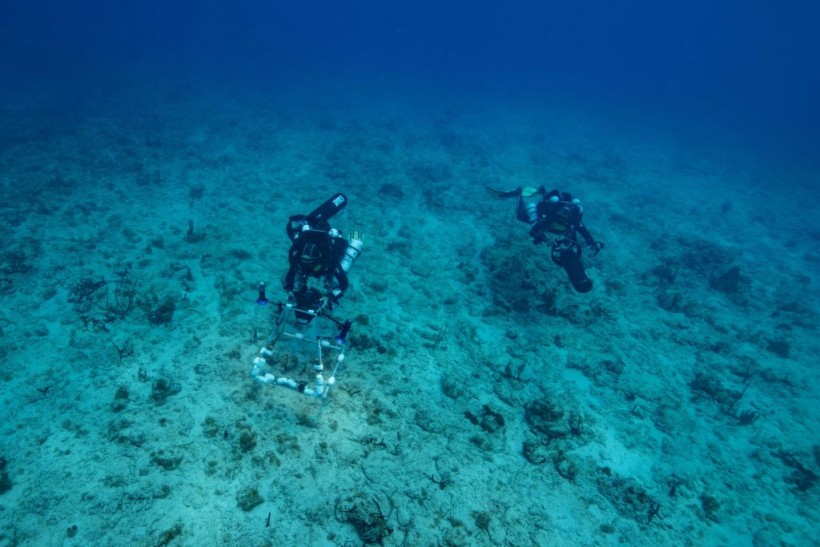Underwater heat waves may be responsible for reshaping the world's global weather patterns, according to scientists as reported earlier this week.
Experts said marine heat waves, in addition to atmospheric heat waves or warming, can also influence even extreme weather events. The new findings are also based on previous weather-related events seen over the years.
Previous research about heat waves, also called extreme heat or heat dome, shows its parallelism with climate change and global warming, a phenomenon driven by anthropogenic or human-induced activities.
The recurring theme of the climate emergency is not new. However, recent discoveries of its environmental repercussions are enough threat that cannot be ignored.
Underwater Heat Waves

French divers Hugo Bischoff, CNRS (National Center for Scientific Research) scientist, and Emmanuel Gouin, doctor and safety diver, take pictures of the sea bed under the water to study the marine forest life, during a two and a half month expedition, as part of the "Under The Pole" mission, on the French island of Guadeloupe, off the coast of Le Moule, on April 16, 2023.
Marine heat waves could be altering global weather patterns and the El Nino weather phenomenon could only make it worse, according to lead scientist Robert Rohde from Berkeley Earth near Oakland, California, as cited by AccuWeather.
Underwater heat waves occur when some parts of the ocean's temperatures reach above historical averages. While such a phenomenon is not uncommon, scientists are reportedly alarmed by multiple, widespread occurrences of these events.
The findings were retrieved from data from the National Oceanic and Atmospheric Administration (NOAA), which showed most of the current marine heat wave is developing off the coast of South America near Peru. A similar phenomenon is also evident in the eastern Atlantic Ocean, north-central Pacific Ocean, southwestern Pacific Ocean, and Indian Ocean, AccuWeather reported.
Also Read: Worsening Marine Heat Waves Pose Disastrous Consequences for Coastal Habitats
Climate Migration
In recent years, scientists have found that ocean warming due to climate change is threatening marine life and ecosystems, with a potential to have catastrophic consequences should current rates of greenhouse gas emissions and fossil fuel burning continue within the 21st century.
In a 2022 study reported by Advanced Science News, a research team led by marine ecologist Neil Hammerschlag from the University of Miami determined that ocean warming is affecting the movements of apex predators in the oceans, such as large sharks.
In their findings, the team found tiger sharks have been migrating for several decades in a process called climate migration, which is driven by anthropogenic climate change and global warming as high temperatures alter habitats not only in the ocean but also on land.
In a related and recent study, an international research team spearheaded by Dr. Irene Alabia of the Arctic at Hokkaido University's Arctic Research Center said marine predators have extended their territorial range in the Arctic water in the past two decades. Their study was published in the journal Scientific Reports in March 2023.
Marine Animal Deaths
In relation to the studies mentioned earlier, the death of marine animals in the near future is inevitable amid the continuance of current climate-damaging emissions that accelerate the greenhouse effect, a process wherein solar heat-absorbing gases are trapped in the atmosphere.
This premise is confirmed by a study published in the journal Science, as reported by The Washington Post in August 2022, wherein scientists concluded that if humans continue to increase their greenhouse gas emissions, almost a third or 33% of all marine animals in the world could vanish within a span of 300 years.
Related Article: Scientists Study Extreme Underwater Heat Waves That Dramatically Impact Marine Life
© 2024 NatureWorldNews.com All rights reserved. Do not reproduce without permission.



![Climate Change is Reducing Dust Levels Worldwide as Arctic Temperature Warms [Study]](https://1471793142.rsc.cdn77.org/data/thumbs/full/70320/280/157/50/40/climate-change-is-reducing-dust-levels-worldwide-as-arctic-temperature-warms-study.jpg)

